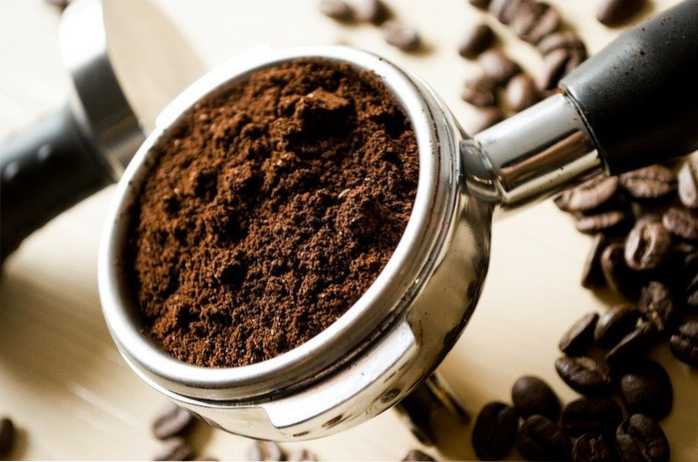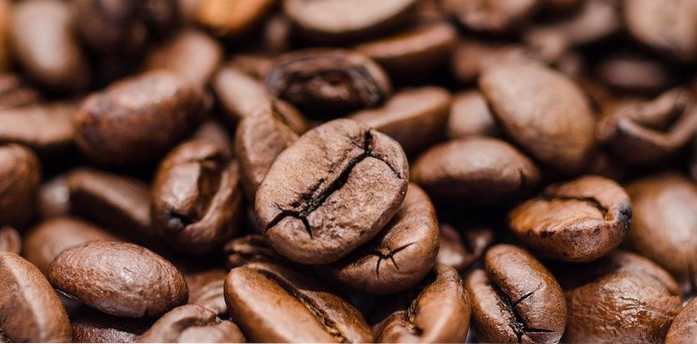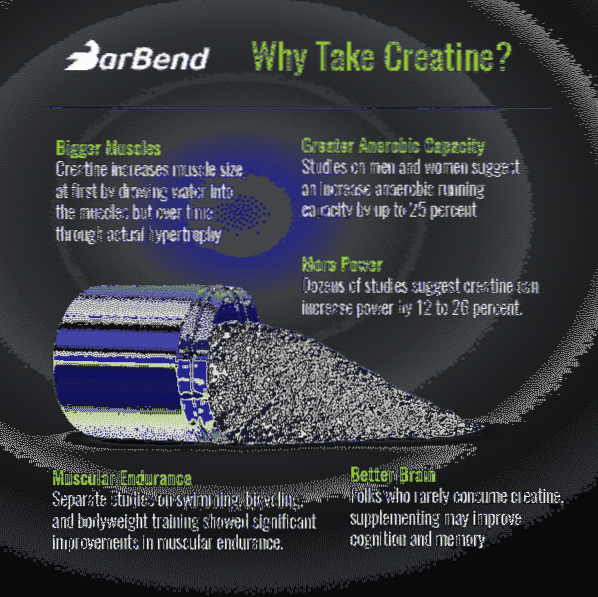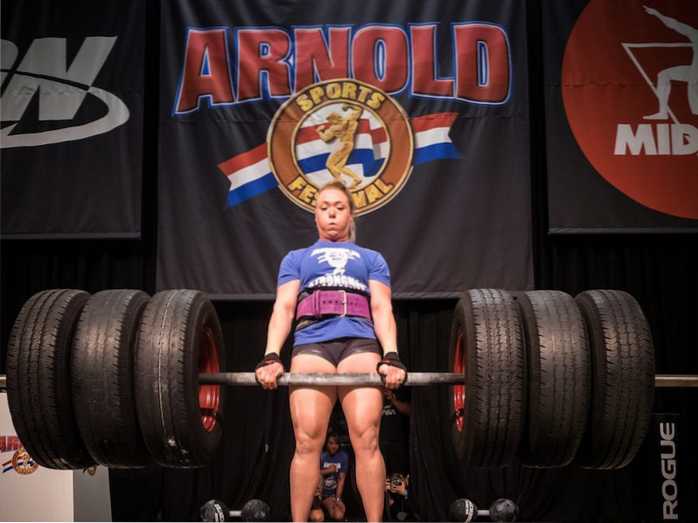
Are Preworkouts Worth It?

When you're looking at workout supplements, there are a handful that have stood the test of time: protein powder, creatine, and preworkouts.
First introduced to the market in 1982 - read about the first preworkout in our super interesting history of workout supplements - they're traditionally understood as concoctions of stimulants to give you energy for the gym, but these days they're much more than that. The products have become extraordinarily complex, with specialized ingredients for power, endurance, and focus, many of which can be found in the novel category of non-stimulant preworkouts.
It's not hard to find controversy surrounding the efficacy of certain overhyped supplements. Athletes are a cynical bunch when it comes to magic pills and powders, which begs the question: are preworkouts worth it?
Editor's note: The content on BarBend is meant to be informative in nature, but it should not be taken as medical advice. The opinions and articles on this site are not intended for use as diagnosis, prevention, and/or treatment of health problems. It's always a good idea to talk to your doctor before beginning a new fitness, nutritional, and/or supplement routine.
Let's Talk About Caffeine
Caffeine works. It's why it's the most popular psychoactive substance on Earth. Unless you experience adverse effects there's no argument as to whether or not it's “worth it” as far as making you feel more awake when you're sleepy, but is there a practical effect when taken before hitting the gym?
Yep.
Caffeine isn't just an eye opener to help you make the commute to work. It might not surprise you to hear that there are a lot of studies suggesting it can help you focus, given how many people believe they needit to start their work day.
“Focus” is kind of a nebulous term, but research has found it can indeed improve reaction time, working memory, and perceptual memory.(1)(2)(3)(4)
But more importantly for athletes, it has real (and more reliable) effects on power output and both aerobic and anaerobic exercise performance.(5)(6)(7)(8)(9)(10)
There's even some (though not irrefutable) evidence that caffeine may increase testosterone and fat oxidation, both of which can be beneficial for athletes.(7)(8)(11)(12)(13)
But that doesn't mean that you should take piles of caffeine before every workout.

“With anything that tends to be more stimulatory in nature, you can have what's called sensory downregulation which produces that you'd call a tolerance effect,” says Dr. Mike T. Nelson, CSCS, an adjunct professor at the Carrick Institute whose PhD focused on metabolic flexibility. “Everyone's experienced this, right? You have your first cup of coffee in months and you're like, 'wow, this is great.' You have three or four a day and you don't notice much of an effect from it.”
[Wondering which preworkouts have the best balance of ingredients? Take a look at our best preworkout roundup.]
He notes that when he has a new client who takes preworkouts or high amounts of caffeine every day, he'll have them cycle off for a while so that they can somewhat normalize their reaction.
“This is just because I find a lot of people tend to replace sleep with caffeine,” he says. “They'll tell me they can run on five or six hours of sleep without a problem, but then I ask them how much caffeine they consume. If we remove that caffeine, they'll realize how tired they actually are and the fact that their bodies need more sleep to perform at their best.”

Indeed, a good amount of these studies on caffeine have only shown noticeable effects on subjects who were tired, as caffeine's effect on adenosine receptors is closer to “blocking sleepiness” than “increasing wakefulness,” if that makes sense. A better strategy than taking hundreds of milligrams of caffeine a day - your average preworkout has about 250 milligrams of the stuff, roughly the amount you'll get in a Starbucks coffee - is to focus on getting enough sleep every night and to use a preworkout before your most important workouts of the week, say, your deadlift workouts if that lift is the focus of your program.
So is a caffeine-heavy preworkout worth it? Sure, caffeine does have really strong links to athleticism. But instead of making caffeine routine, you're more likely to experience benefits if you get enough sleep every night and use the preworkout once or twice a week.
But then, there are other ingredients that are common in preworkouts that might be worth taking more regularly.

Non-Stimulant Preworkouts
We've written extensively about these compounds before, but we're going to just talk about a few of the most common and well-researched ingredients you should look for.
Creatine
This enormously popular supplement is often added to preworkouts because it has a very strong link with increasing power output. There are dozens of studies suggesting as much, with two published in Molecular and Cellular Biochemistry and Journal of the International Society of Sports Nutrition suggesting a boost from anywhere between 12 and 25 percent. (14)(15) It appears to be most effective at the 1- to 3-rep range.
Does it have to be taken pre workout? No. It can be taken at any time of day and you there's not much point in taking more than five or ten grams a day.
“If you take creatine at five grams per day for four weeks, you'll completely saturate the muscle so you won't see a huge effect by taking more,” says Nelson. “If I have one cup of water and it's full of water, I can't pour any more water in. That's how it works with creatine saturation.”
[Check out our list of the best creatine products on the market.]
Is creatine worth it? Absolutely, especially for vegetarians who don't consume any through animal products, where it naturally occurs at lower levels.(16) (It also draws water into the muscles, making 'em look bigger.) But whether or not it's taken before a workout doesn't really matter. And the same goes for…

Beta Alanine
When you take this amino acid, your skin tingles. It's kind of fun, it's harmless, and it gives a sensation that it's kicking in. Studies published in Amino Acids, the Journal of Strength and Conditioning Research, and elsewhere have found that two to five grams can increase endurance and help with strength training routines in the 8- to 15-rep range.(17)(18)(19)
The truth though is that this supplement can also be taken at any time of day; it's not only working when your skin starts tingling.
“Yes, you can take creatine and beta alanine as a preworkout, but I'd rather people take them at another time,” says Nelson. “It's not necessarily bad to take them beforehand, but we're looking to saturate the muscles with them. There's not really too much of an acute effect.”
Carbohydrates
“Everyone seems to forget that carbohydrates are a great preworkout,” Nelson adds. “If you're on a really low carb diet and trying to crank out volume in the gym, it's not going to go super well. It's not super sexy, but don't forget about carbs.”
Which Preworkouts Aren't Worth It?
There are plenty of other ingredients with solid research supporting them, particularly theanine for focus and betaine for power. There are some ingredients that don't appear to be quite so useful.
Glutamine
Frequently added to protein shakes and preworkouts because of its purported ability to build muscle, the studies that have shown this effect have mostly seen it in burn victims and people in a state of trauma.(20) For most people, there's probably no need to supplement it; it's the most abundant amino acid in the body and most of it is stored in and used by the gut. Very little of it reaches the muscles when you're supplementing, rather the body releases it over time as needed.
[Learn more: Is Glutamine Actually Worth Your Money?]
Arginine
This amino acid is purported to help with your strength output and vasodilation - it's meant to help with nitric oxide output - but its link to N.O. is weak and it doesn't absorb super well. The way it influences N.O. is the same way that another amino acid citrulline does, but citrulline absorbs a lot more effectively.
So if you're looking for a means to increase your nitric oxide, try citrulline or one of these supplements for pump instead.
[Read more: Why Arginine Isn't Such a Great Preworkout.]
Most Proprietary Blends
When a product tells you how great it is but doesn't tell you exactly what's in it, then you can't know if it's actually measuring up to the standard recommended doses. For example, if a product has a 5-gram “super high performance pump xplode blend” of creatine, citrulline, beta alanine, and theanine, legally it could have 4.99 grams of creatine and completely ineffective doses of the others.

Wrapping Up
We haven't covered every single preworkout ingredient on Earth here, but as an answer to the question of are preworkouts worth it: yes, if you pick the right ingredients and use them judiciously.
Caffeine is great, but it's better for you to be well rested and to not take it every day. Creatine, betaine, and beta alanine have really strong links with power, power, and endurance respectively, but you don't actually have to take them before your workout if you'd rather not. Theanine or taurine can help with focus when paired with caffeine.
There's little reason to avoid preworkouts entirely provided you don't have adverse reactions. Just make sure you're not blowing your money on low quality ones with the wrong ingredients.
References
1. Duvnjak-Zaknich DM, et al. Effect of caffeine on reactive agility time when fresh and fatigued. Med Sci Sports Exerc. 2011 Aug;43(8):1523-30.
2. Mednick SC, et al. Comparing the benefits of caffeine, naps and placebo on verbal, motor and perceptual memory. Behav Brain Res. 2008 Nov 3;193(1):79-86.
3. Smillie LD, et al. Caffeine enhances working memory for extraverts. Biol Psychol. 2010 Dec;85(3):496-8.
4. Childs E, et al. Subjective, behavioral, and physiological effects of acute caffeine in light, nondependent caffeine users. Psychopharmacology (Berl). 2006 May;185(4):514-23.
5. Mora-Rodríguez R, et al. Caffeine ingestion reverses the circadian rhythm effects on neuromuscular performance in highly resistance-trained men. PLoS One. 2012;7(4):e33807.
6. Del Coso J, et al. Dose response effects of a caffeine-containing energy drink on muscle performance: a repeated measures design. J Int Soc Sports Nutr. 2012 May 8;9(1):21.
7. Cook C, et al. Acute caffeine ingestion's increase of voluntarily chosen resistance-training load after limited sleep. Int J Sport Nutr Exerc Metab. 2012 Jun;22(3):157-64.
8. Paton CD, et al. Caffeinated chewing gum increases repeated sprint performance and augments increases in testosterone in competitive cyclists. Eur J Appl Physiol. 2010 Dec;110(6):1243-50.
9. Schneiker KT, et al. Effects of caffeine on prolonged intermittent-sprint ability in team-sport athletes. Med Sci Sports Exerc. 2006 Mar;38(3):578-85.
10. Desbrow B, et al. The effects of different doses of caffeine on endurance cycling time trial performance. J Sports Sci. 2012;30(2):115-20.
11. Beaven CM, et al. Dose effect of caffeine on testosterone and cortisol responses to resistance exercise. Int J Sport Nutr Exerc Metab. 2008 Apr;18(2):131-41.
12. Norager CB, et al. Metabolic effects of caffeine ingestion and physical work in 75-year old citizens. A randomized, double-blind, placebo-controlled, cross-over study. Clin Endocrinol (Oxf). 2006 Aug;65(2):223-8.
13. Astrup A, et al. Caffeine: a double-blind, placebo-controlled study of its thermogenic, metabolic, and cardiovascular effects in healthy volunteers. Am J Clin Nutr. 1990 May;51(5):759-67.
14. Kreider RB. Effects of creatine supplementation on performance and training adaptations. Mol Cell Biochem. 2003 Feb;244(1-2):89-94.
15. Cooper R, et al. Creatine supplementation with specific view to exercise/sports performance: an update. J Int Soc Sports Nutr. 2012 Jul 20;9(1):33.
16. Benton D, et al. The influence of creatine supplementation on the cognitive functioning of vegetarians and omnivores. Br J Nutr. 2011 Apr;105(7):1100-5.
17. Hobson RM, et al. Effects of β-alanine supplementation on exercise performance: a meta-analysis. Amino Acids. 2012 Jul;43(1):25-37.
18. Stout JR, et al. Effects of beta-alanine supplementation on the onset of neuromuscular fatigue and ventilatory threshold in women. Amino Acids. 2007;32(3):381-6.
19. Kern BD, et al. Effects of β-alanine supplementation on performance and body composition in collegiate wrestlers and football players. J Strength Cond Res. 2011 Jul;25(7):1804-15.
20. Parry-Billings M, et al. Does glutamine contribute to immunosuppression after major burns? Lancet. 1990 Sep 1;336(8714):523-5.



Nimeni nu a comentat acest articol încă.